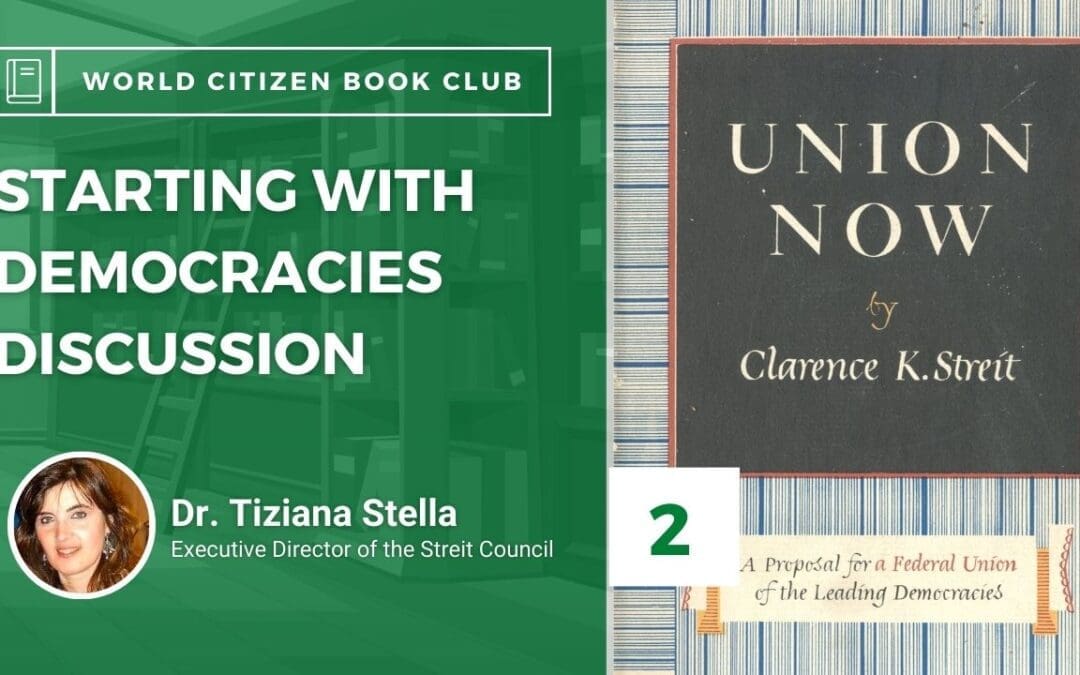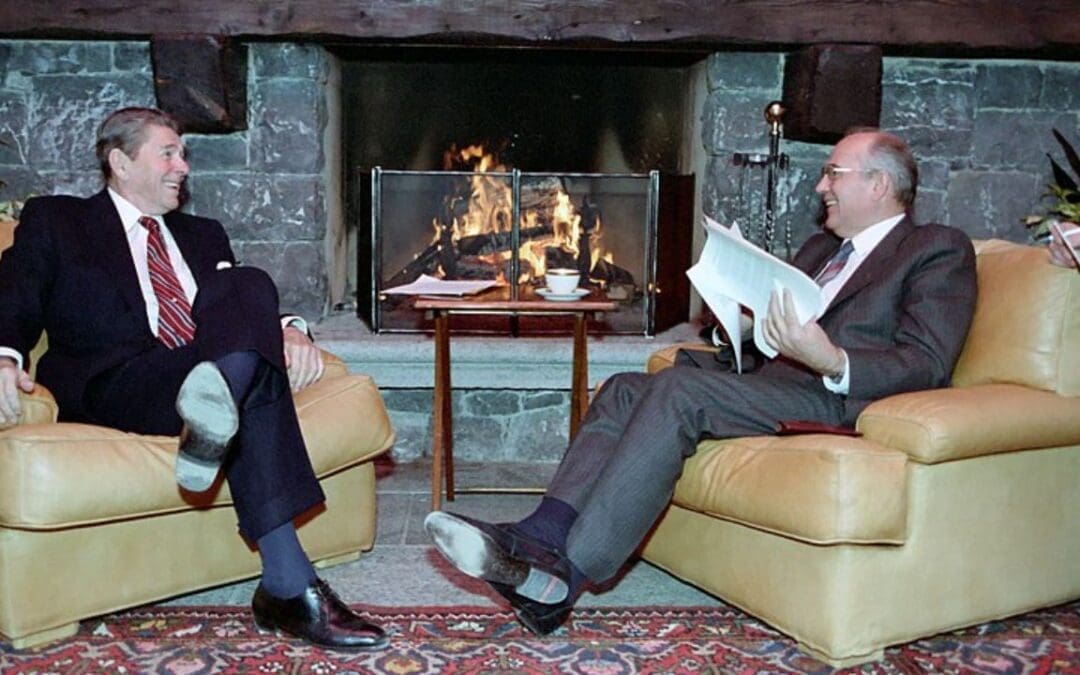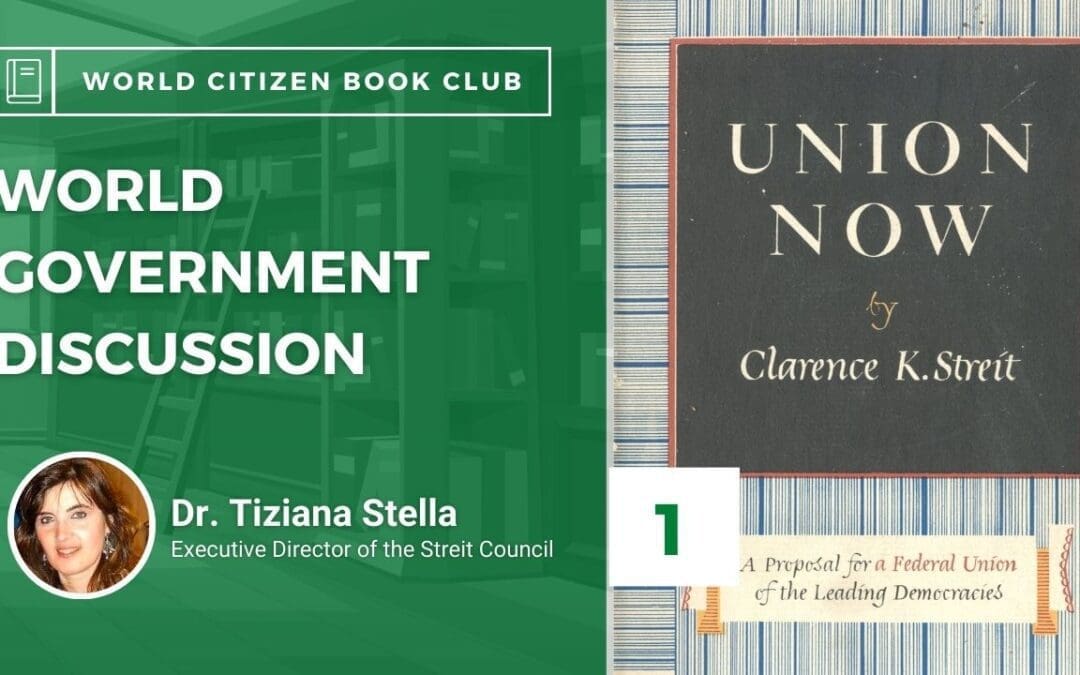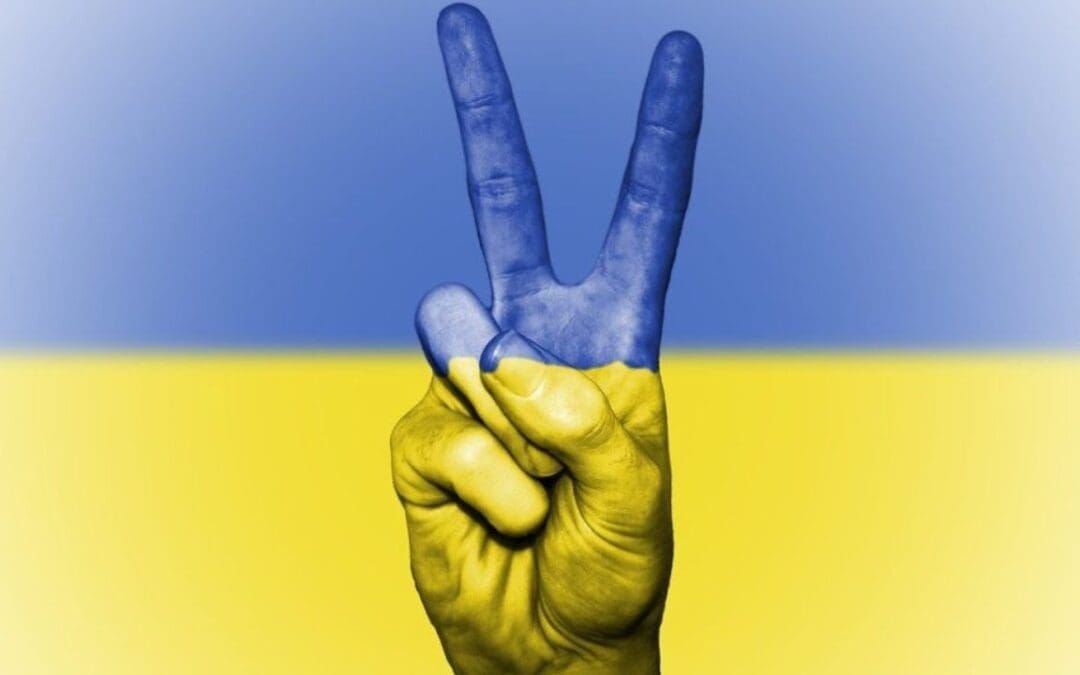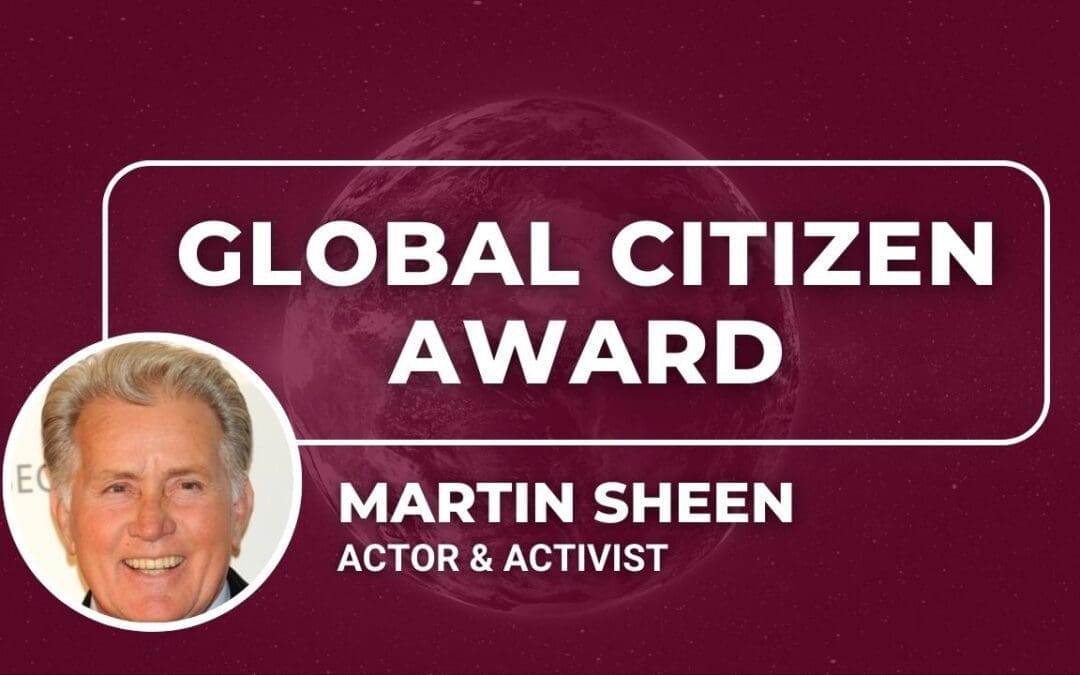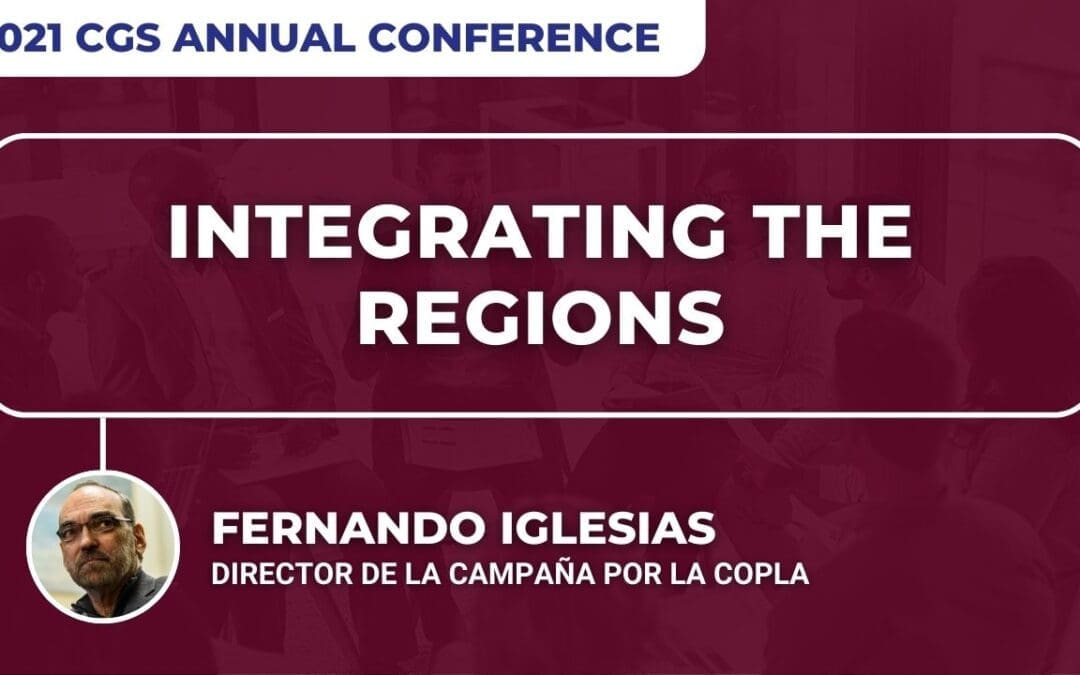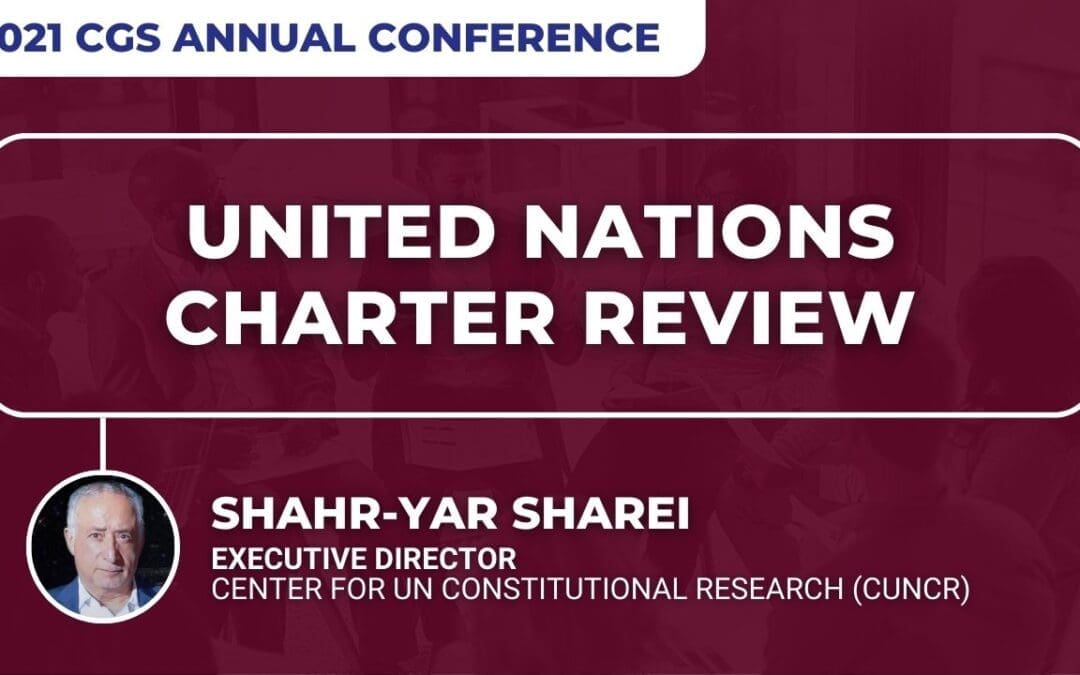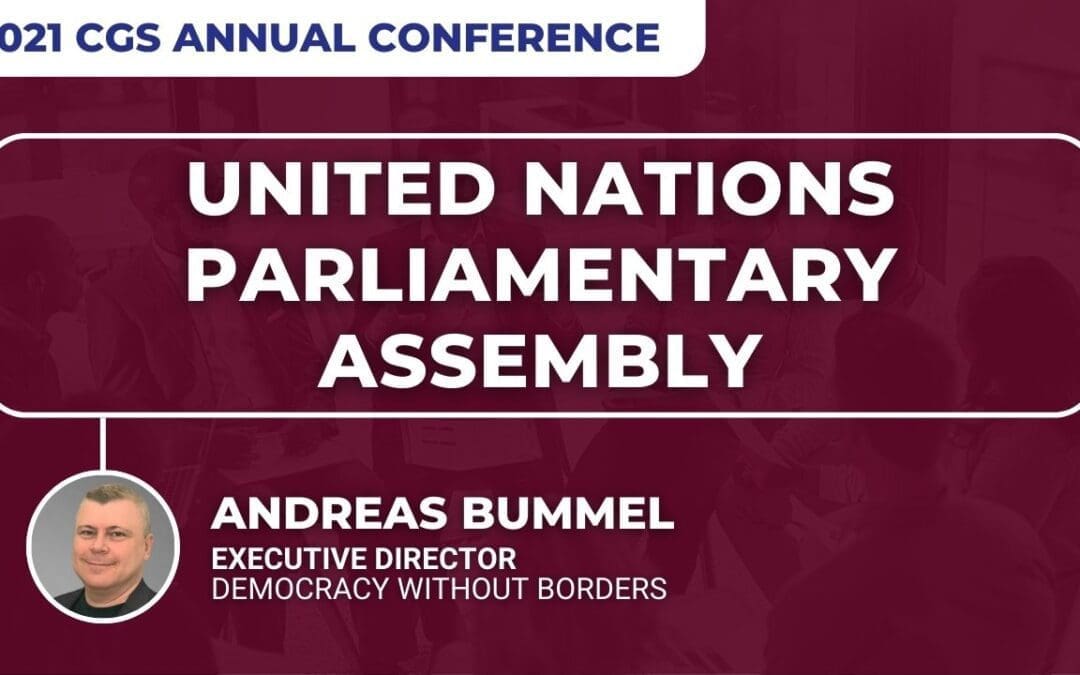
by Donna Park | Oct 9, 2022 | World Federation
I am a grandmother, and I have a dream that grandparents will work with their grandchildren to unite the world and build a better future.
But first we need to have a vision of how the world could be improved.
Many global problems face the world today
There are many problems facing the world today, including war and the threat of nuclear destruction, climate change, human rights abuses, hunger, extreme poverty, growing income inequality, and global pandemics. One central source of our global problems is that we have put nations above people. I think we should put people first. National sovereignty and security should not be more important that the sovereignty and security of individuals. Governments should be protecting the rights and freedoms of their people, not sacrificing them.
War is one way in which nations sacrifice their people rather than protect them. War kills and injures people. War destroys the environment. War robs us of our financial and natural resources War does not bring peace, although it does make a lot of money for some.
Think creatively to eliminate war
Surely it is time to think creatively about eliminating war. Here in the United States, we can look to our own history for a way to accomplish that. When Americans decided to transform the confederation of 13 colonies into a federation of states, they agreed to resolve their differences in a court of law rather than on the battlefield. The original 13 states were able to eliminate or transform their militias. With no need any longer to fight one another, they could rely on the rule of law to settle disputes. Although the rule of law is not perfect, it is the best method we have found. And it is preferable to war.
We need a similar transformation at the global level. Why not transform the confederation of nations known as the United Nations into a United Federation of Nations? Under this strengthened UN system, all nations could agree to resolve their differences using the rule of law rather than weapons of destruction. Nations could be required to disarm and to transform their armed forces into peacekeeping forces that would respond to natural disasters and other domestic crises.
Unite the World
To implement this program, we could start by creating a World Parliament at the United Nations to give a voice to the people of the world, rather than just their governments. We also need a world constitution to define a democratic federation of nations with a universal declaration of human rights and the ability to create and enforce world law that outlaws war and nuclear weapons. Furthermore, we will need international courts (such as the International Criminal Court) and international police to arrest those who break the law. Fortunately, much work has been done defining these components over the past 75 years.
All these components will cost much less than the vast amounts spent on the current war systems. Furthermore, a United Federation of Nations could be employed to deal effectively with other global problems, such as climate change.
This vision is shared by the Young World Federalists. Their tag line is “Unite the World.” As their website explains, they are “a global movement to unite humanity through the creation of a democratic world federation.” They believe that the current system of competitive sovereign countries fails to tackle the global challenges that impact us all. Accordingly, they advocate a new form of global governance, one in which people cooperate to secure their common interest through a democratic world federation. They envision a sustainable, just, and peaceful world through a democratic world federation. It would be a world run by humanity, for humanity, providing equal opportunity to all on a thriving planet.
Work across the generations
The Young World Federalists (YWF) are building on the work of well-established organizations such as Citizens for Global Solutions (CGS). CGS was founded 75 years ago, and many of its supporters, like me, are grandparents of the Young World Federalists’ generation. We are delighted to be working with these young people and, in fact, have a lot to learn from them in this modern era of social media and technology. We also have a lot to share with them, including our knowledge, experience, and funding. One of their programs that we are co-sponsoring is the Week for World Parliament, which includes an event in New York City on October 22-23.
Working together, young and old, we are committed to building a united world and a better future for all.

by Roger Peace | Oct 4, 2022 | Uncategorized
There is no doubt that the Russian invasion of Ukraine constitutes a criminal act of aggression. What lay behind this, however, is a complicated set of competing geopolitical ambitions and threat perceptions, and beyond these, a fundamental weakness in the United Nations mediation and collective security systems.
Russian leaders from Boris Yeltsin to Vladimir Putin have viewed NATO’s gradual expansion to the east as a grave national security threat. In 2008, President George W. Bush opened the door to Ukraine and Georgia for future NATO membership, thus bringing this Western military alliance to the doorstep of Russia. While there has been much debate over whether NATO expansion constitutes a broken promise to the Soviet Union (and Russia), there is no doubt that Russian leaders have regarded it as an existential threat to their nation.
The Russian response has been to support separatist movements in Georgia and Ukraine, annex the Crimea Peninsula, and, most recently, invade Ukraine. U.S. leaders have deemed these actions gross overreactions, or perhaps indications of a desire on Putin’s part to remake Russia into an empire along the lines of the old Soviet Union. Whatever the case, the invasion of Ukraine has been counterproductive for Russia, as NATO has been strengthened and expanded further.
U.S. leaders have taken the position that NATO is of no threat to any nation, and thus they have been unwilling to compromise on Ukraine’s eventual membership. Then, too, U.S. leaders generally regard U.S. global power as protective and benevolent, notwithstanding a long record of military interventions and covert operations in other nations. No doubt, they would respond with alarm if Russia or China invited Mexico to join in a military alliance.
Might the war in Ukraine have been avoided if the U.S. had relied on the UN rather than NATO to ensure security in the region?
The UN Charter requires that parties in any dispute “shall, first of all, seek a solution by negotiation, enquiry, mediation, conciliation, arbitration, judicial settlement, resort to regional agencies or arrangements, or other peaceful means of their own choice” (Article 33). Should the latter fail, the charter provides for collective security measures in which member nations can collectively deter or repel would-be aggressors through joint diplomatic, economic, and military actions “for the purpose of maintaining international peace and security” (Article 43).
The UN has often failed to live up to its mandate to “end the scourge of war,” which has led many to dismiss the institution as irrelevant. Yet, like all great changes and paradigm shifts, progress in establishing a global security system is incremental and may be centuries in the making. Think of the establishment of democratic governments, human rights policies, and religious tolerance.
In the late 1980s, Soviet leader Mikhail Gorbachev attempted to revive this inclusive concept of security set forth in the UN Charter. Speaking before the UN General Assembly on December 8, 1988, he declared, “The world community must learn to shape and direct the process in such a way as to preserve civilization, to make it safe for all and more pleasant for normal life. It is a question of cooperation that could be more accurately called ‘co-creation’ and ‘co-development.’ The formula of development “at another’s expense” is becoming outdated.”
Turning to the U.S., Gorbachev proposed that the U.S. and Soviet Union begin a “joint effort to put an end to an era of wars, confrontation and regional conflicts, to aggression against nature, to the terror of hunger and poverty as well as to political terrorism. This is our common goal and we can only reach it together.” Giving substance to these aspirations, he announced Soviet decisions to withdraw significant numbers of troops and tanks from Eastern European countries and to seek a UN-brokered ceasefire in Afghanistan.
It was a remarkable speech, especially as Americans had been conditioned to view the Soviet Union as the graveyard of idealism. The editors of the New York Times had difficulty describing it: “Breathtaking. Risky. Bold. Naive. Diversionary. Heroic. All fit. So sweeping is his agenda that it will require weeks to sort out. But whatever Mr. Gorbachev’s motives, his ideas merit – indeed, compel – the most serious response from President-elect Bush and other leaders.”
The incoming George H. W. Bush administration was hesitant to endorse Gorbachev’s idealistic reforms. Indeed, the U.S. foreign policy establishment viewed Moscow’s retreat from great power domination as an opportunity to advance U.S. interests and establish the U.S. as the sole superpower in the world.
Gorbachev remained undaunted. Having taken up the challenge to reinvent the Soviet socialist system, he was equally determined to instigate humanistic reforms in the international arena. To diffuse the Cold War in Europe, he proposed an end to both NATO and the Warsaw Pact. Speaking in France in July 1989, he called for a cooperative “commonwealth of sovereign democratic states with a high level of equitable interdependence and easily accessible borders open to the exchange of products, technologies and ideas, and wide-ranging contacts among people.”
Eastern European nations, in other words, would join Western European nations in creating a common European identity and culture, buttressed by open trade and travel. Western European nations had already modeled this in forming the European Economic Community (1957) followed by the European Union (1993), enabling age-old national animosities to dissolve.
In essence, Gorbachev was proposing a way out of great power competition, in line with the UN Charter, presuming that a friendly international neighborhood is the best security. This is the vision that is needed today – a reimagining of the world order. Beyond immediate crises, we need to work toward an inclusive and sustainable global security system.
Moreover, continuation of the current system of big power competition and rival blocs bodes ill for the future. The Bulletin of Atomic Scientists has set its “doomsday clock” at 100 seconds to midnight, closer than it has ever been, based on nuclear and global warming threats, an indication of how close humanity is to “destroying our world with dangerous technologies of our own making.” Moving toward mutual security and cooperation will set the clock back and allow humanity to move forward.
“Breaking the Cycle of Insecurity” was originally published in History News Network, September 18, 2022
Photo: Reagan White House Photographs, 1/20/1981 – 1/20/1989

by Citizens for Global Solutions | Mar 2, 2022 | Organizational Statement
Citizens for Global Solutions stands in solidarity with all peoples and with any nation whose rights have been violated in international disputes of any kind. But at this chilling moment, we especially stand with the people of Ukraine against Russia’s illegal act of aggression. We call for adherence to international law as underscored in Article 2(4) of the United Nations Charter which states that, “All Members shall refrain in their international relations from the threat or use of force against the territorial integrity or political independence of any state, or in any other manner inconsistent with the Purposes of the United Nations.” It is obvious that President Putin has violated the spirit, if not the letter, of this most primary of all international agreements.
In 1947, Citizens for Global Solutions was founded as the United World Federalists to promote the concept that peace with justice can only be possible through the creation of a democratic federation of nations. All these years later, it couldn’t be more obvious that although the United Nations has done much good in the world, as it is currently structured it is largely unable to stop military aggression across national borders. We must transform the United Nations from a confederation of nations to a United Federation of Nations with the ability, through the vehicle of a world constitution and a global legislature, to create and enforce international law in order to eliminate war and nuclear weapons, protect universal human rights, save our fragile global environment, and cooperatively manage global pandemics. It is time for all of us to demand this better method to govern our world.
Taking this broader view, we recognize that our current flawed system of global governance lacks mechanisms of law enforcement and fair adjudication—exemplified by the fact that Russia was in a position to veto the Security Council’s condemnation of their own immoral act of aggression. Instead, our current world system depends upon the good will of leaders of all nations upholding their treaty agreements and resolving disputes through diplomacy, in accord with the narrow “self-interest” of their nations. What is playing out before our eyes in Ukraine, as well as in numerous other instances since WWII, demonstrates the inadequacy of a system that depends on good will and self-interest—and ultimately on the global rule of the nation (or alliance) with the strongest military and a willingness to use it—rather than the rule of impartial justice. Situations such as the Ukraine war will only cease when we have enforceable global law and the use of world courts to settle disputes. Without these mechanisms of genuine civilization, all sides are victims of a system that cannot guarantee peace and security.
Given the absence of the just rule of enforceable world law, we call on the Security Council to enforce member agreements, which we view as the best existing means to ensure the safety and protection of innocent civilians. We also commend the International Criminal Court for its decision to open an investigation on the situation in Ukraine. Those who commit genocide, war crimes, crimes against humanity and the crime of aggression must be brought to justice.

by Citizens for Global Solutions | Nov 14, 2021 | Past Event
This award was given to Martin Sheen on November 13, 2021 at CGS’s Annual Conference.
This award recognizes individuals who are recognized as Global Citizens by the general public for their commitment to one or more of the following areas:
- An end to war and violence in the resolution of international disputes
- The elimination of nuclear weapons
- Democratic global governance
- Protection of universal human rights and freedoms
- Care of the global environment
- Embracing loyalty to our world in addition to loyalty to any one nation

by Citizens for Global Solutions | Nov 13, 2021 | Past Event
Fernando Iglesias presents paths to world federation through integrating the regions.
Fernando is serves as a Member of Parliament in Argentina (2007-2011 and 2017-2021), the Director of the campaign for a Latin American and Caribbean Criminal Court Against Transnational Organized Crime (COPLA), and the Co-Chair of the UNPA campaign’s Parliamentary Advisory Group. He is also a founding member of Democracia Global – Movimiento por la Unión Sudamericana y el Parlamento Mundial and directs the Altiero Spinelli Chair for Regional Integration at the Consorzio Universitario Italiano per l’Argentina.


